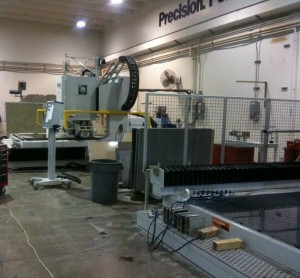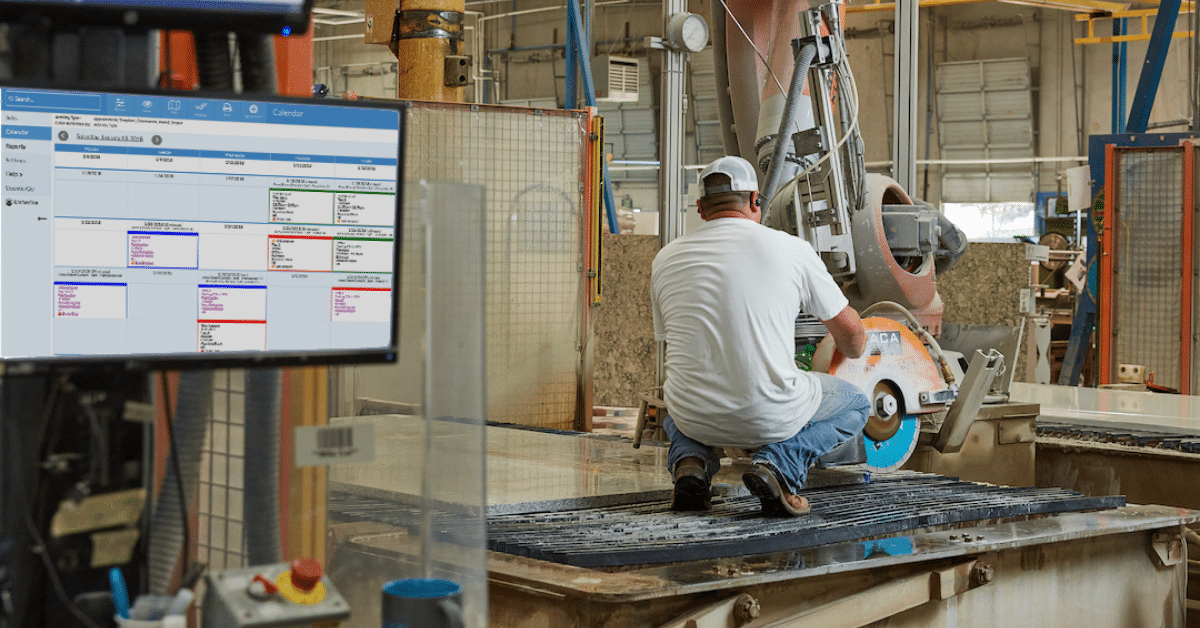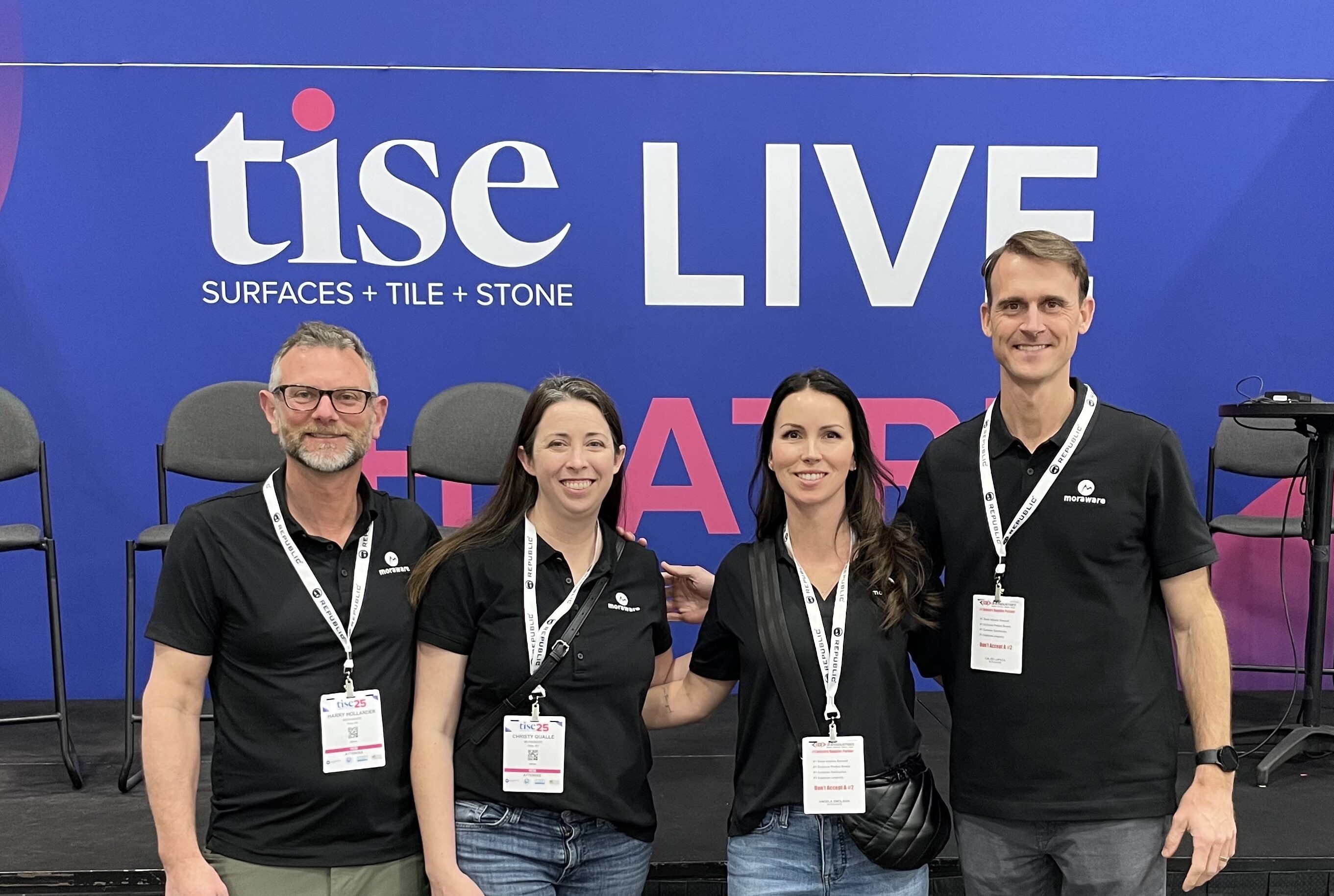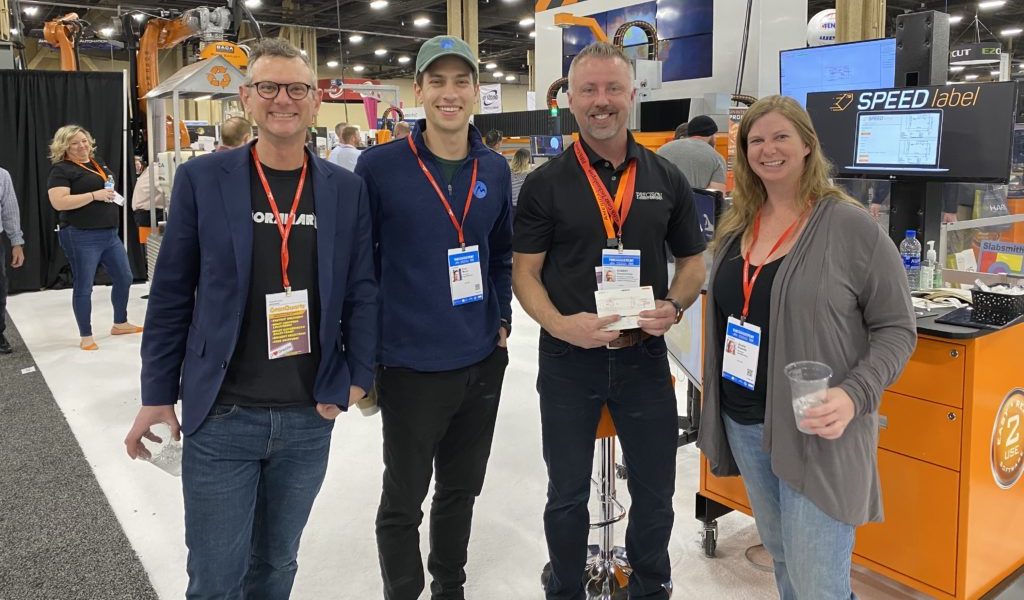I attended the Digital Stoneworking Expo at Park Industries in St. Cloud, MN on June 9, 2011. The agenda included software, digital templating, and manufacturing countertops with CNC saws, waterjets and routers, and educating stone fabricators on the digital revolution that’s taking place now.
First, Joan Schatz, the COO of Park Industries, discussed “The Park Way”. The concept that really resonated with me was how they treat their customers – with the goal of turning each one into an advocate who actively promotes Park. With over 60 years experience of doing this with more than 3000 customers, they’ve really refined this process.
Software
Then, after a short introduction to the upcoming digital revolution from Dale Schleppenbach, I got to present. Talk about trial by fire… but it was really fun. I described how we sell software to granite fabricators.
- Why and how we do an in-depth “needs analysis”
- What our software does, including a short demo
- Getting started with countertop software
Organizing a talk about it forced me to write down our system at a high level, and I’ll be writing about it in some future blog posts, too.
Jim Hoffman gave a short demonstration of the LT-55 digital templator. It’s fun to see in person – many of our users who also have digital templates never need their templaters to come into the office, so they can get more done every day.
Next, Matt Binsfield from Park and Bill Elliot of Slabsmith walked through a demonstration of the Pathfinder, which is a system that allows you to take pictures of individual stone slabs, and then impose those images onto CAD drawings to visualize the finished countertops. This is really sexy technology, especially for matching the veins in exotic granite.
Making the Decision
Then Mark Raby from Austin Countertops talked about their experience of starting a stone shop. Austin Countertops already had very successful cultured marble, laminate, and Corian production facilities, but they saw the dynamics of the market changing to natural stone and quartz.
They decided to start in May of 2010 with a big investment in technology – they purchased a sawjet, CNC router, and backsplash polisher. The equipment was delivered in August 2010. Now, with a staff of only 4 dedicated employees, they produce and install 2-3 kitchens per day. And, they still expect to keep getting more efficient as they learn more.
Mark’s company is really an awesome example of how adopting digital technology can allow fast growth in your business while keeping the number of employees involved small.
After lunch, we briefly heard from Joe Meyer at Pristine Full Circle water treatment – it’s crazy how important water quality is for all of these machines.
Then, there were demonstrations of the water-jet and CNC router. This was really cool; basically as we were going between the demonstration shop area and the lunch room where we saw the CAM software, a small countertop with sink cutouts, faucet holes, and range was being fabricated.
Understanding the Impact
Finally, Stuart Young from The Granite Shop described how he transformed his stone shop into a digital fabrication facility and has gotten amazing results.
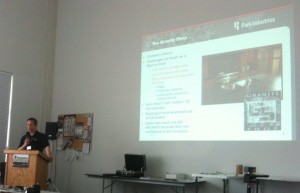 Before Stuart made the transition, he felt like he had lost control of his business, was producing work below his intended level of quality, and had a huge backlog of work that wasn’t getting done. As a consequence, his salespeople weren’t selling efficiently because they lost confidence in the company.
Before Stuart made the transition, he felt like he had lost control of his business, was producing work below his intended level of quality, and had a huge backlog of work that wasn’t getting done. As a consequence, his salespeople weren’t selling efficiently because they lost confidence in the company.
After changing to a completely digital workflow in 4 weeks, he now has control, even when he’s not there. In fact, on the day he was giving his talk, his company was moving the granite shop to a new location. During the course of the day, Stuart was calm and composed… and nobody called him with last-minute emergencies. He’s built a business that empowers his employees to make crucial decisions.
In addition to having control, there are some pretty astounding financial consequences, too.
- They doubled their production volume in the same facility with fewer workers.
- They increased the sq.ft per man hour, which is a key metric in their business.
- Labor rates went down because of a dramatic decrease in overtime pay.
- Stone material costs went down from 32% to 27%.
In addition, the transition to running a digital shop has allowed them to concentrate on the business, build a high profile within the industry, and positioned them for continued growth.
Thanks again to Stephanie and Dale for inviting me to the expo. I really learned a ton from the day, and I’m looking forward to the next one! I felt really lucky to be one of the speakers, and enjoyed the other presenters immensely, too.
Want to know more? At Moraware, we make software for stone fabricators. JobTracker is scheduling software that helps you eliminate the time you waste looking for job folders. RemnantSwap is a place to buy and sell granite remnants with fabricators near you.

